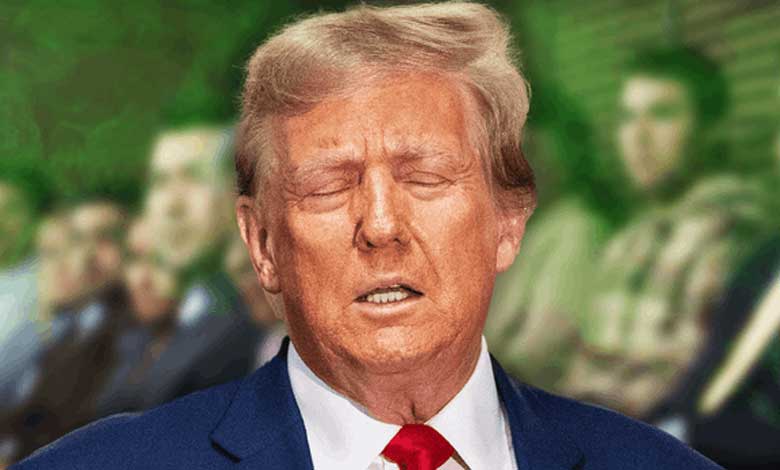Trump’s Trade Moves Could Push U.S. Allies into China’s Arms—Is America’s Global Leadership at Risk?
President Donald Trump acknowledged Sunday that Americans could experience “some pain” from the emerging trade war triggered by tariffs against Canada, Mexico, and China.

President Donald Trump acknowledged Sunday that Americans could experience “some pain” from the emerging trade war triggered by tariffs against Canada, Mexico, and China. The trade penalties he signed on Saturday at his Florida resort sparked panic, anger, and uncertainty, threatening to damage long-standing North American trade relations while worsening ties with China.
Table of Contents
Trump’s Remarks on Tariffs and Canada’s Role
In a social media post, Trump warned that “prices go up” as a result of other countries’ reactions to America’s laws. He targeted Canada directly, emphasizing the importance of its trade surplus with the U.S. He stated, “We don’t need anything they have. We have unlimited energy, should make our own cars, and have more lumber than we can ever use.” Despite these comments, Canada supplies a significant portion of the oil consumed in the U.S., with one-quarter of U.S. oil imports coming from its northern neighbor.
Trump also argued that without this trade surplus, “Canada ceases to exist as a viable country.” He suggested that Canada should become the U.S.’s “Cherished 51st State,” offering lower taxes, better military protection, and no tariffs.
Retaliatory Measures by Canada
In response, Canada imposed retaliatory tariffs, targeting over $155 billion in U.S. products, including alcohol, fruit, and steel. Prime Minister Justin Trudeau has urged Canadians to purchase more domestic goods, warning that Trump’s tariffs will cause pain across North America. Canada’s ambassador to the U.S., Kirsten Hillman, expressed confusion over the move, highlighting Canada’s status as the U.S.’s “closest friend” and ally.
Potential Consequences for Inflation and U.S. Consumers
Trump‘s actions also risk undoing his promise to quickly reduce inflation, a significant concern for U.S. consumers and businesses. His administration has not outlined how long the tariffs will last or the specific goals needed for their removal. Trump admitted in a post that there might be “some pain” but assured that the long-term benefits would outweigh the short-term costs.
The U.S. Economy and Political Fallout
Economists and political figures have voiced concerns that the tariffs could harm U.S. households. Larry Summers, Treasury Secretary under President Clinton, warned that the tariffs would likely lead to a 1% increase in inflation over the next nine months, ultimately hurting the U.S. economy. An analysis by Yale’s Budget Lab estimates that, if the tariffs persist, the average American household could lose $1,245 this year.
Canada, Mexico, and China’s Retaliation
In addition to Canada’s response, Mexico and China are also expected to take action. Mexican President Claudia Sheinbaum announced new tariffs and suggested that the U.S. should focus on addressing domestic issues like drug addiction. Canada’s and Mexico’s coordinated response could further strain U.S. relations in the region.
Meanwhile, the Chinese government has indicated that it will take steps to protect its economic interests, including filing a lawsuit with the World Trade Organization.
Political Pressure and the Future of the Tariffs
The ultimate question is whether inflation and the economic damage caused by the tariffs could pressure Trump to back down. Despite his previous claims that higher inflation could “stagger” the U.S., Trump now faces the possibility of harming the very voters he aimed to support with these measures. The outcome of this trade war remains uncertain, with some analysts predicting that the tariffs may be temporary, though a resolution seems unclear.
Goldman Sachs suggested that while the tariffs are set to take effect on Tuesday, a last-minute compromise is still possible, though it is unlikely at this stage.
